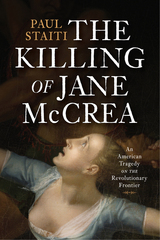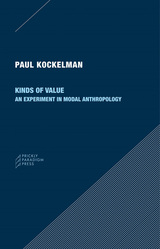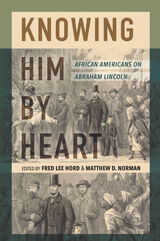3 books about Complaints against
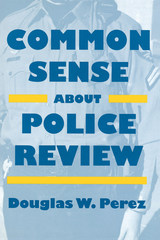
Common Sense Police Review
Douglas Perez
Temple University Press, 1995
"This book provides knowledge that will be useful to city governments, civil rights organizations, community leaders, clergy, civilian review board advocates, as well as police chiefs and unions. It sheds considerable light on an important issue...[and] makes clear that there are wide ranging variations among departments in policies, accepted practices, management control of the use of force, and accountability of supervisors and officers who use excessive force."
--Patrick V. Murphy, Director, Police Policy Board of the U.S. Conference of Mayors
Common Sense about Police Review is the first comparative study to consider both civilian and internal police review processes. Using survey research of police attitudes and citizen complaints compiled over fifteen years from police departments across the nation, Douglas W. Perez analyzes past and current review systems as a way to develop criteria for comparing three archetypal systems of police review: internal, external (civilian), and hybrid forms of the two.
High media visibility of several events--the 1988 police riot in New York City's Tompkins Square, the 1991 videotaped beating of Rodney King, and the 1992 beating death of Malice Green by Detroit police detectives--has brought police review back into the public arena; not since civil rights demonstrators clashed with police in the 1960s has officer accountability been so hotly debated.
Crucial to any monitoring system are guidelines, which Perez stresses must insist on rigorous investigations of alleged police abuses, outline strict limitations of police action, strive to bridge gaps between police officers and citizens, and exonerate officers who are found to have acted properly and legally. With these standards, the author asserts, a balance between self-sanctioning and enforced regulation can be achieved. Examining fairness, objectivity, and thoroughness in review systems throughout the country, Perez offers a model for the "ideal" police review system. Included are valuable discussions of both the causes of police attitudes and behavior and the misconceptions and expectations that can contribute to a pervasive public image of police malpractice. Perez provides helpful reflections on the role of politicians and administrators in implementing and maintaining police accountability.
[more]
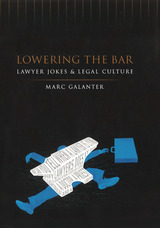
Lowering the Bar
Lawyer Jokes and Legal Culture
Marc Galanter
University of Wisconsin Press, 2006
What do you call 600 lawyers at the bottom of the sea? Marc Galanter calls it an opportunity to investigate the meanings of a rich and time-honored genre of American humor: lawyer jokes. Lowering the Bar analyzes hundreds of jokes from Mark Twain classics to contemporary anecdotes about Dan Quayle, Johnnie Cochran, and Kenneth Starr. Drawing on representations of law and lawyers in the mass media, political discourse, and public opinion surveys, Galanter finds that the increasing reliance on law has coexisted uneasily with anxiety about the “legalization” of society. Informative and always entertaining, his book explores the tensions between Americans’ deep-seated belief in the law and their ambivalence about lawyers.
[more]
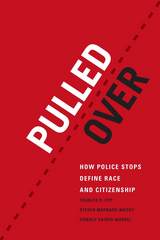
Pulled Over
How Police Stops Define Race and Citizenship
Charles R. Epp, Steven Maynard-Moody, and Donald P. Haider-Markel
University of Chicago Press, 2014
In sheer numbers, no form of government control comes close to the police stop. Each year, twelve percent of drivers in the United States are stopped by the police, and the figure is almost double among racial minorities. Police stops are among the most recognizable and frequently criticized incidences of racial profiling, but, while numerous studies have shown that minorities are pulled over at higher rates, none have examined how police stops have come to be both encouraged and institutionalized.
Pulled Over deftly traces the strange history of the investigatory police stop, from its discredited beginning as “aggressive patrolling” to its current status as accepted institutional practice. Drawing on the richest study of police stops to date, the authors show that who is stopped and how they are treated convey powerful messages about citizenship and racial disparity in the United States. For African Americans, for instance, the experience of investigatory stops erodes the perceived legitimacy of police stops and of the police generally, leading to decreased trust in the police and less willingness to solicit police assistance or to self-censor in terms of clothing or where they drive. This holds true even when police are courteous and respectful throughout the encounters and follow seemingly colorblind institutional protocols. With a growing push in recent years to use local police in immigration efforts, Hispanics stand poised to share African Americans’ long experience of investigative stops.
In a country that celebrates democracy and racial equality, investigatory stops have a profound and deleterious effect on African American and other minority communities that merits serious reconsideration. Pulled Over offers practical recommendations on how reforms can protect the rights of citizens and still effectively combat crime.
[more]
READERS
Browse our collection.
PUBLISHERS
See BiblioVault's publisher services.
STUDENT SERVICES
Files for college accessibility offices.
UChicago Accessibility Resources
home | accessibility | search | about | contact us
BiblioVault ® 2001 - 2025
The University of Chicago Press


